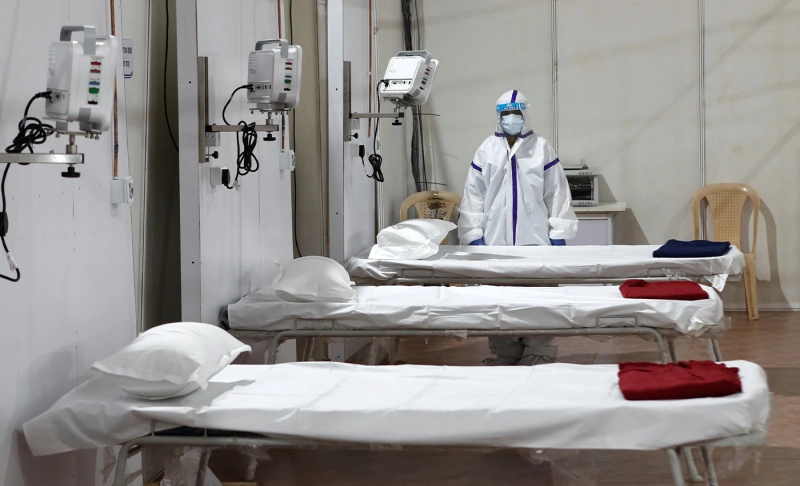By: Pallavi Sethi
January 14 2022
Misleading: In 1918, no one who took part in Joseph Pilates’ training program caught the Spanish Flu.

The Verdict Misleading
Joseph Pilates made this claim as marketing material for his technique; its reliability has been questioned.
Joseph Pilates made this claim as marketing material for his technique; its reliability has been questioned.A popular post on Facebook claims that not enough is being done to promote a healthy diet and exercise during the COVID-19 pandemic. The author references Joseph Pilates’ training program in 1918, during the Spanish Flu outbreak, saying that Pilates “noticed that none of those who trained in his physical training had been infected.” However, as noted in the Canadian, this claim, which was made by Pilates himself, lacks context. Pilates is thought to have developed his program at the Knockaloe Internment Camp on the Isle of Man, where he was detained with approximately 23,000 other inmates toward the end of the First World War. His program is what we now call Pilates. Pilates involves various low-impact exercises and stretches and is often compared to yoga. According to the Canadian, the 1918-19 Spanish flu pandemic did not reach the Isle of Man until several months after the first reported cases. Many sick inmates isolated themselves as much as possible, and schools and churches closed. While the mortality rate at the camp was unusually low, it cannot be attributed to Pilates’ technique, as the mortality rate was low on the whole island. As the Canadian reports, historical records suggest that the windy climate and blockades constructed on the island may have played a part. The Candian also says the claim that 8,000 “disciples” practiced Pilates' exercises is untrue – the figure was closer to 7,000. The New York Times reports that Pilates’ claim about his program preventing illness was a key tenet of his marketing plan. Speaking to the Times for its report, Joe Gallagher, a U.S.-based physical therapist, adds that: “The flu story is possible, but it is also just as possible it isn’t true. Because the island was so isolated, they didn’t have a big outbreak of influenza. If no one gets infected, nobody dies.” We know that exercise is important to maintaining good health, and Pilates’ training program would likely have been beneficial to the prisoners’ wellbeing. However, we cannot say that Pilates’ training program was the main reason for the low mortality rate on the island. Furthermore, while the post does not explicitly mention COVID-19, it suggests that physical activity and nutrition can play a role in combating the virus and says that lockdowns and masks are detrimental to physical health. While some public health measures may have downsides, we know that masks and social distancing lower the risk of contracting COVID-19, which can cause serious health issues and long-term illness in even young, healthy adults. A study from Harvard indicated that regular physical exercise might help protect someone from severe cases of COVID-19. However, researchers said that further research was needed to verify this and that vaccines are still much more effective than exercise alone. The claim about Joseph Pilates alone is unverifiable, as we do not know that the training program prevented people from dying from the Spanish Flu in 1918. However, we have reason to be suspicious; it was used as a marketing tactic, and the island’s geographical isolation may have played a greater role. We have rated this claim as misleading because it comes in the context of suggesting that public health measures to mitigate COVID-19 are ineffective, which is untrue. The COVID-19 pandemic has given rise to a lot of potentially dangerous misinformation. For reliable advice on COVID-19, including symptoms, prevention, and available treatment, please refer to the World Health Organization or your national healthcare authority.


